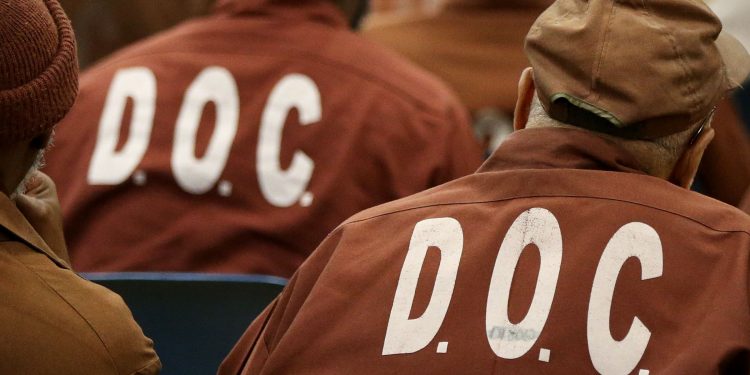The move to eliminate “prison gerrymandering” will benefit communities of color when new House and Senate maps are drawn, but Republicans are questioning its legitimacy.
Sarah Anne Hughes of Spotlight PA
This article is part of a yearlong reporting project focused on redistricting and gerrymandering in Pennsylvania. It is made possible by the support of Spotlight PA members and Votebeat, a project focused on election integrity and voting access.
HARRISBURG — Thousands of people incarcerated in state prisons will be counted in their home legislative districts rather than in corrections facilities when Pennsylvania redraws the maps, a major policy change that will benefit communities of color.
The Legislative Reapportionment Commission voted 3-2 in favor of a resolution introduced by House Minority Leader Joanna McClinton (D., Philadelphia), who said it “makes no sense” to count people in communities where they have no long-term relationships or plans to remain.
“We cannot wait another 10 years,” she said. “The time to correct this injustice is now.”
Opponents call the practice prison gerrymandering. In Pennsylvania, it has boosted the population of primarily white, rural districts at the expense of communities of color in areas including Philadelphia and Allegheny County.
More than 37,000 people are currently incarcerated in Pennsylvania’s state prisons. People of color are overrepresented inside these facilities: While less than 20% of Pennsylvania residents are Black or Hispanic, 56.2% of state prisoners are from one of those groups.
The resolution passed Tuesday states that people who are Pennsylvania residents will be counted at the address where they lived immediately prior to being sentenced for the purposes of the state House and Senate maps. It excludes people who are serving life sentences or who were not residents of the state prior to being sentenced.
Tuesday’s vote does not affect the state’s congressional map, which will be drawn by the Republican-controlled legislature and approved by Democratic Gov. Tom Wolf. It also does not impact federal or county prisons.
Republicans on the panel expressed concerns about fairness and unequal treatment.
Senate Majority Leader Kim Ward (R., Westmoreland) said it seemed wrong to her that college students would be counted where they learn while incarcerated people would be counted in their home communities.
“I know [prisoners are not there] by their choice, but they really are because they committed a crime, and they’ve been convicted of a crime,” she said. “They lost their right to choose where they live.”
House Majority Leader Kerry Benninghoff (R., Centre) said he was concerned about the legality of the vote and believed the decision should be made by the entire legislature, not just by the reapportionment panel.
“It is clear that this is a fundamental policy change, and significant policy change requires, at minimum, the enactment through the deliberative legislative process,” he said.
The panel’s chief counsel, former Commonwealth Court Judge Robert Byer, said his analysis showed no constitutional or legal issues.
This story will be updated.
WHILE YOU’RE HERE… If you learned something from this story, pay it forward and become a member of Spotlight PA so someone else can in the future at spotlightpa.org/donate. Spotlight PA is funded by foundationsand readers like you who are committed to accountability journalism that gets results.




